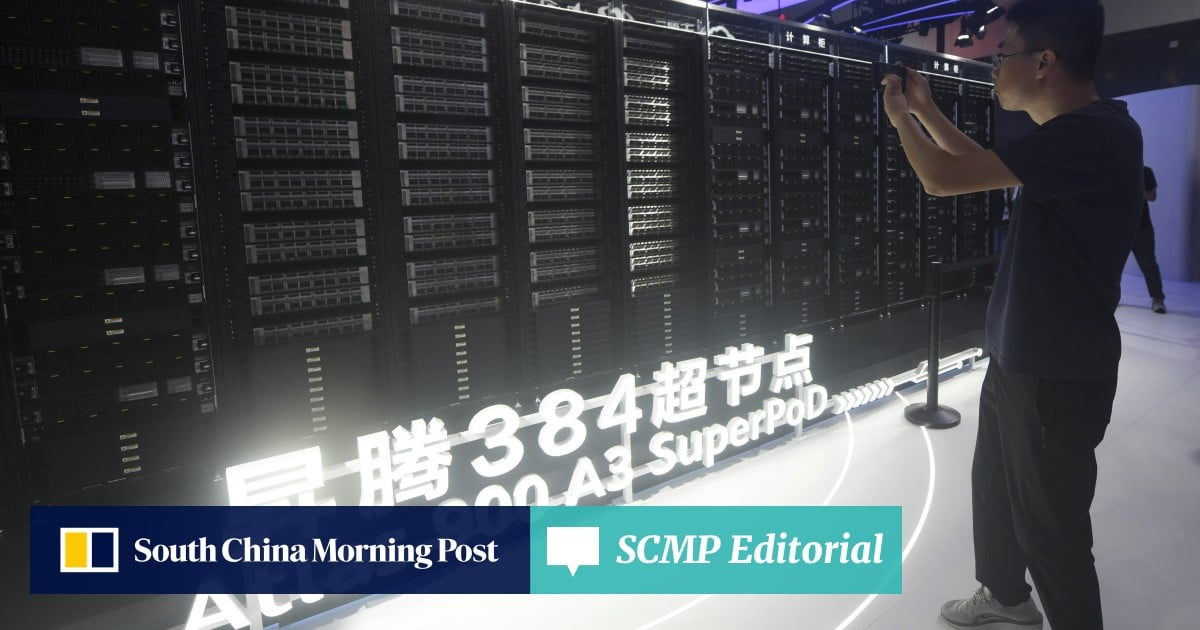It is not the best salesmanship to openly tell your biggest customer you won’t sell them your best products, only inferior ones taking up storage space. And yet, in explaining why US President Donald Trump would let Nvidia and other US tech firms sell chips to China, Commerce Secretary Howard Lutnick pretty much said the same. He explained the firms would only be allowed to sell those worse than their “third-best” chips.Before Nvidia had time to uncork the champagne to celebrate regaining a potential billion-dollar market, Beijing promptly leaned on major domestic firms to stop buying its H20 graphics processing units and RTX Pro 6000D artificial intelligence (AI) chips. These are all slower-performing chips tailor-made for the Chinese market.In another snub, Huawei Technologies, sanctioned by the United States but championed by Beijing, has announced it has worked out a breakthrough solution to power ahead with AI using only domestic resources. The ambitious three-year plan aims to challenge Nvidia’s AI chips by combining brute-force computing power with massive chip clusters, faster data networking and government policy support. The idea is that their combined powers can close the performance gaps even with Nvidia’s most advanced AI units.
It was probably no accident that the announcement, made at the tech giant’s Connect Conference in Shanghai, came just a day before a scheduled phone call between President Xi Jinping and Trump.
The Chinese leadership understands that Trump appreciates the need for leverage in negotiations, and it is not averse to showing him some. Huawei has built up what is believed to be the world’s most powerful supernode computing cluster using only local chipmaking processes. In the next three years, the coming generations of Ascend-branded AI chips will work with upgraded “SuperPod” designs, a term borrowed from Nvidia that refers to the broadest data platforms combining computing, storage, networking, software and hardware infrastructure.
With Huawei at the centre, China aims to build a domestic AI ecosystem free from US dominance. A whole series of Ascend chips are scheduled to roll out in direct competition with the timetables of Nvidia and Advanced Micro Devices between now and 2028.

